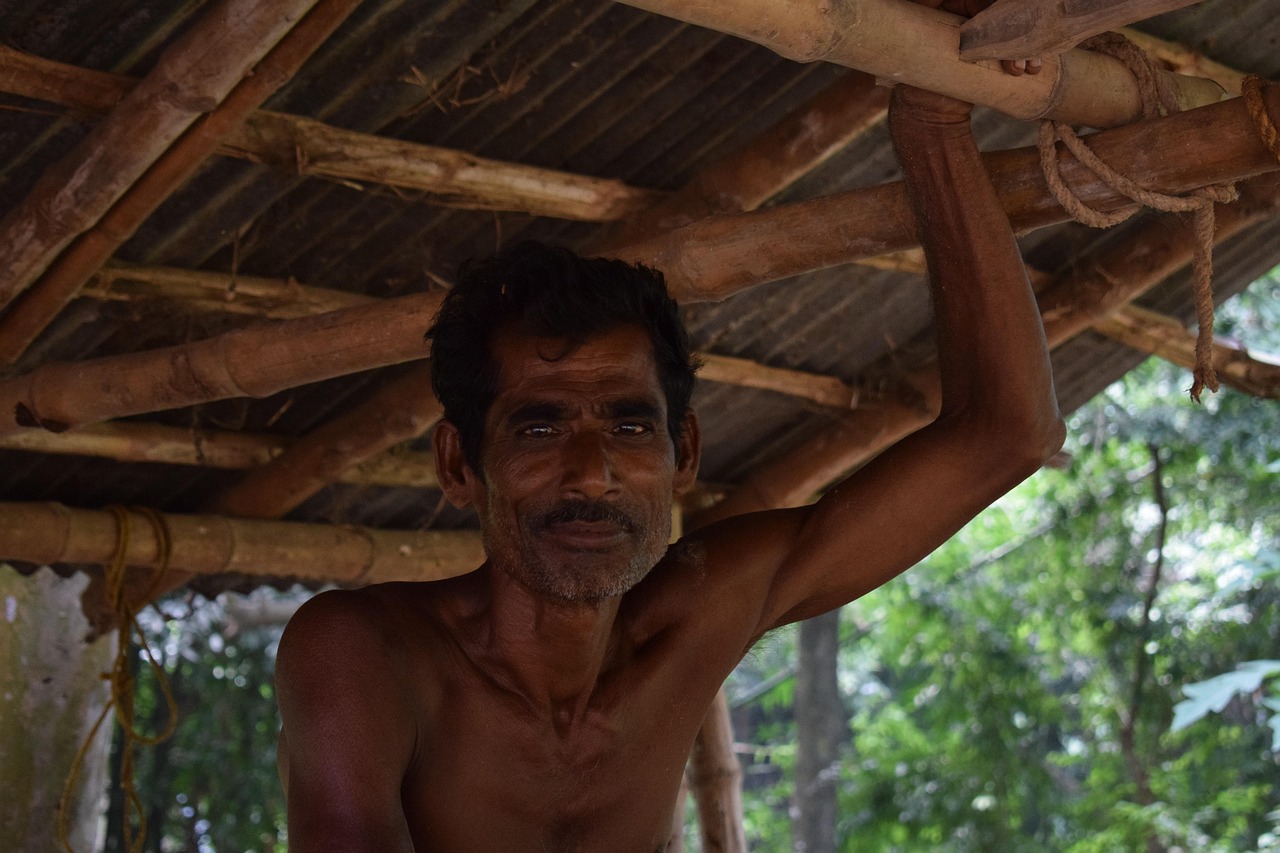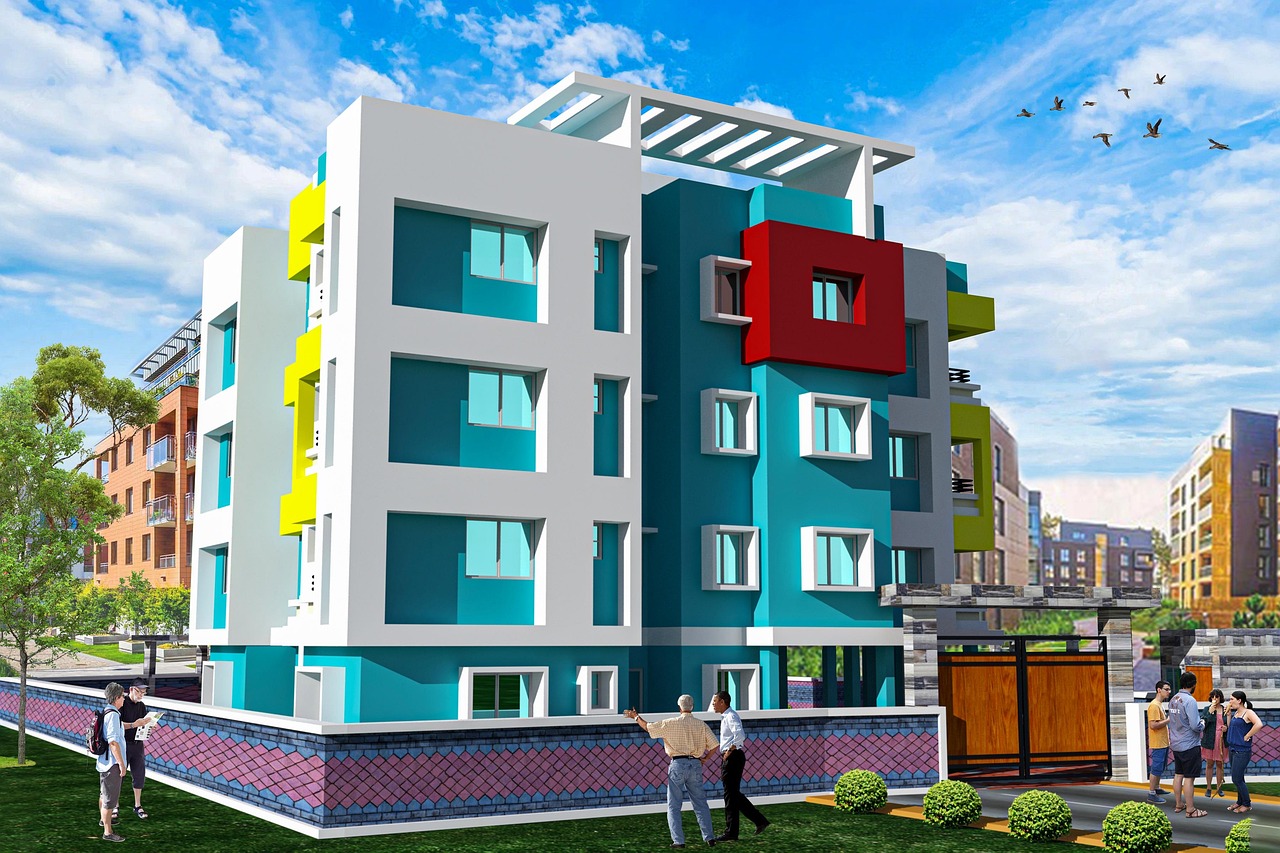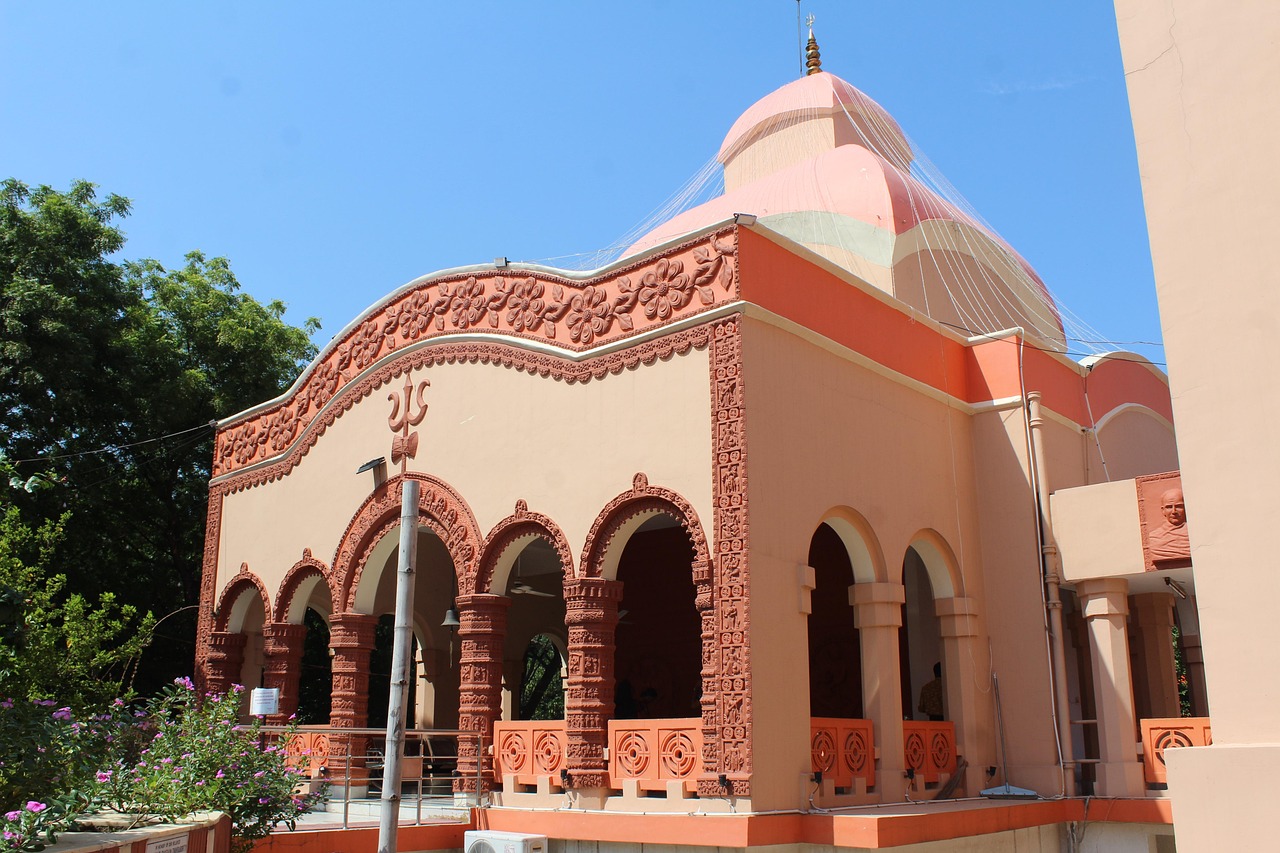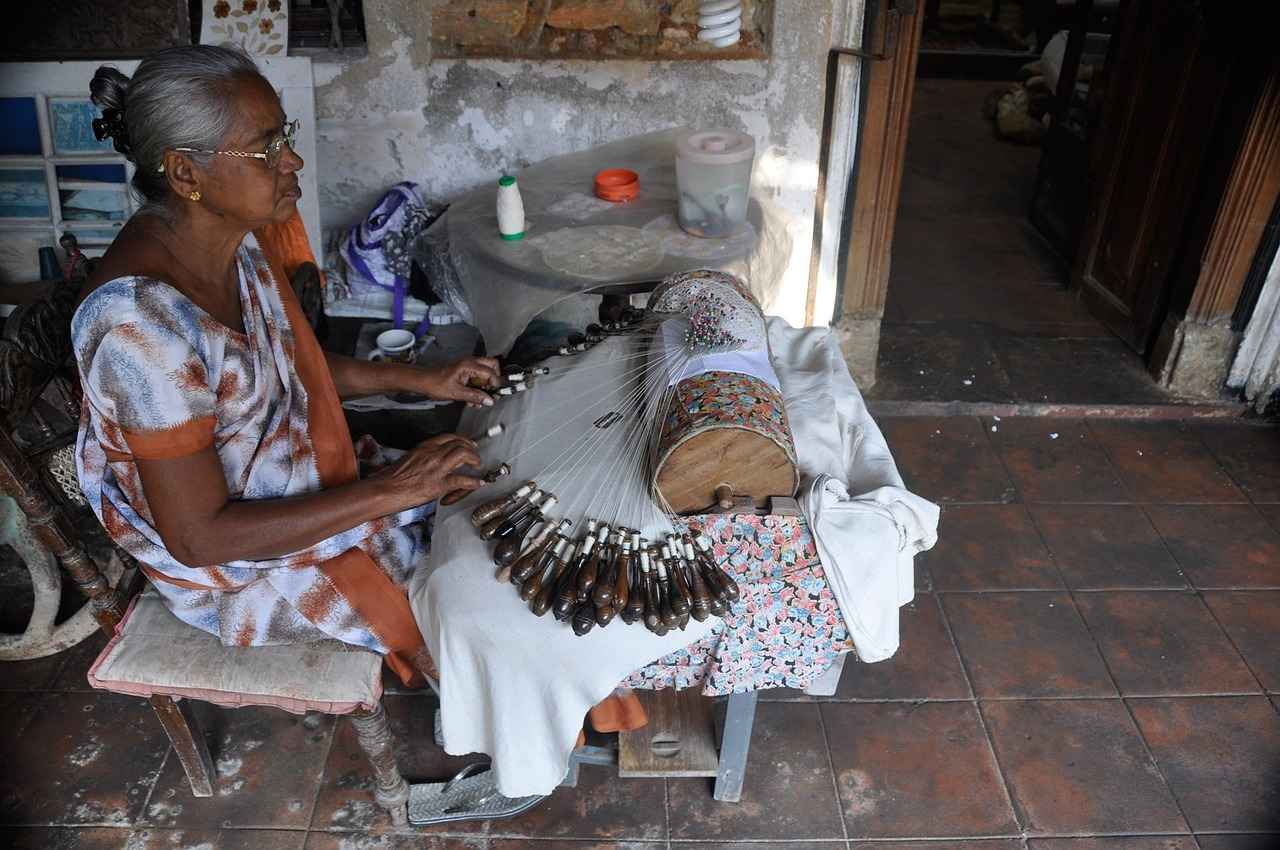This article provides a comprehensive overview of various government schemes available in West Bengal. By understanding these initiatives, residents can effectively utilize them for both personal advancement and community development, ensuring a better grasp of the resources at their disposal.
Understanding West Bengal’s Government Schemes
West Bengal’s government has launched a multitude of schemes aimed at enhancing the quality of life for its citizens. These initiatives span several critical areas, including agriculture, education, and healthcare, all designed to promote the welfare of the community.
Key Government Schemes for Farmers
- Krishak Bandhu Scheme: This scheme provides essential financial support to farmers, ensuring they receive direct benefits for crop cultivation, along with insurance coverage to promote agricultural sustainability.
- Paschim Banga Kanya Sathi Prakalpa: Aimed at empowering women in agriculture, this initiative offers financial assistance and training, encouraging their active participation in farming and fostering gender equality.
Education Schemes for Students
- Swami Vivekananda Merit-cum-Means Scholarship: This scholarship aids students from underprivileged backgrounds in pursuing higher education through financial support based on merit and need.
- Kanyashree Prakalpa: Focused on enhancing the educational status of girls, this scheme provides financial incentives to reduce dropout rates and promote female empowerment.
Healthcare Initiatives in West Bengal
- Ayushman Bharat Scheme: This initiative offers health insurance to economically disadvantaged families, ensuring access to necessary medical treatment without financial strain.
- Swasthya Sathi Scheme: This scheme provides health insurance coverage for hospitalization expenses, promoting overall health and well-being among the population.
How to Apply for These Schemes
The application process for government schemes in West Bengal is straightforward. Understanding the requirements is crucial for availing benefits efficiently.
- Online Application Process: Most schemes now allow online applications, making it easier for individuals to apply from home.
- Required Documentation: Applicants need to prepare specific documents, such as identity proof and income certificates, to validate their eligibility.
Impact of Government Schemes on Society
The implementation of these schemes has profoundly affected society by improving living standards and educational opportunities, contributing to the overall development of West Bengal.
- Economic Growth and Development: These initiatives have been vital in fostering economic growth, providing financial support and resources to various sectors, leading to job creation.
- Empowerment of Marginalized Communities: By facilitating access to education, healthcare, and employment, these schemes promote social equity and inclusion.
Conclusion
In conclusion, the government schemes in West Bengal offer invaluable resources for its residents. By understanding and utilizing these initiatives, individuals can significantly enhance their quality of life and contribute to community development.

Understanding West Bengal’s Government Schemes
West Bengal, a state known for its rich cultural heritage and diverse population, has implemented a range of government schemes aimed at enhancing the quality of life for its residents. These initiatives span various sectors, including agriculture, education, and healthcare, thereby addressing the multifaceted needs of the community.
The primary goal of these schemes is to promote overall welfare and uplift the living standards of the people, especially those from economically disadvantaged backgrounds. By providing financial assistance, training, and access to essential resources, the government aims to create a more equitable society.
In the agricultural sector, for instance, schemes such as the Krishak Bandhu Scheme play a crucial role in supporting farmers. This initiative not only offers financial aid for crop cultivation but also provides insurance coverage, ensuring that farmers can sustain their livelihoods even in the face of adversities. Additionally, the Paschim Banga Kanya Sathi Prakalpa empowers women by encouraging their participation in agriculture, promoting gender equality in rural development.
In the realm of education, the Swami Vivekananda Merit-cum-Means Scholarship and Kanyashree Prakalpa are pivotal in ensuring that students from underprivileged backgrounds can access quality education. These programs provide financial support and incentives, significantly reducing dropout rates and fostering a culture of learning.
Healthcare initiatives like Ayushman Bharat and Swasthya Sathi schemes are designed to provide comprehensive health coverage, ensuring that all residents, particularly the underprivileged, can access necessary medical services without financial strain.
In conclusion, understanding and leveraging the various government schemes in West Bengal can lead to significant improvements in individual and community well-being. By actively participating in these initiatives, residents can contribute to a more developed and inclusive society.

Key Government Schemes for Farmers
Farmers in West Bengal have access to a variety of government schemes aimed at enhancing agricultural productivity and ensuring sustainable farming practices. These initiatives not only provide financial assistance but also offer training and essential resources to help farmers improve their practices and yield better crops.
Understanding these schemes is crucial for farmers to maximize their benefits. Below, we explore some of the prominent schemes available:
- Krishak Bandhu Scheme: This flagship scheme provides direct financial support to farmers for crop cultivation. It also includes insurance coverage to safeguard against crop failures, ensuring a secure income for farmers and encouraging them to adopt modern agricultural techniques.
- Paschim Banga Kanya Sathi Prakalpa: Aimed at empowering women in agriculture, this scheme offers financial assistance and training specifically designed for female farmers. By promoting gender equality, it encourages women’s participation in farming, thereby contributing to rural development.
- Soil Health Card Scheme: This initiative focuses on assessing and improving soil health, providing farmers with necessary information on soil nutrients. By utilizing soil health cards, farmers can make informed decisions about fertilizers and crop selection, leading to better yields.
- Pradhan Mantri Fasal Bima Yojana: This crop insurance scheme aims to protect farmers against losses due to natural calamities, pests, and diseases. It ensures that farmers receive compensation, thus reducing the financial burden during difficult times.
By actively engaging with these schemes, farmers can significantly enhance their agricultural productivity and contribute to the overall growth of the agricultural sector in West Bengal. It is essential for farmers to stay informed about these initiatives and take advantage of the resources available to them.
Krishak Bandhu Scheme
The is a significant initiative launched by the Government of West Bengal aimed at providing essential financial support to farmers. This scheme not only ensures that farmers receive direct benefits for their crop cultivation but also includes comprehensive insurance coverage, thereby promoting agricultural sustainability and security.
Under the Krishak Bandhu Scheme, farmers are granted a one-time financial assistance amount that helps them in various aspects of farming, including the purchase of seeds, fertilizers, and other necessary inputs. This direct financial aid serves as a lifeline for many farmers, especially those who face challenges due to unpredictable weather conditions or market fluctuations.
Moreover, the scheme integrates a crop insurance component which protects farmers against losses resulting from natural calamities. This feature is crucial in a state where agriculture is heavily influenced by seasonal changes. By mitigating risks, the scheme encourages farmers to invest in better farming practices and crop diversification, ultimately leading to improved productivity and sustainability.
In addition to financial support, the Krishak Bandhu Scheme also emphasizes the importance of training and education for farmers. Workshops and training sessions are conducted to equip farmers with modern agricultural techniques and sustainable practices. This holistic approach not only aids in immediate financial relief but also fosters long-term growth and resilience in the agricultural sector.
Furthermore, the scheme fosters a sense of community among farmers, encouraging them to share knowledge and resources. This collaborative spirit is essential for building a robust agricultural framework that can withstand challenges and thrive in the competitive market.
In conclusion, the Krishak Bandhu Scheme is a transformative initiative that plays a vital role in enhancing the livelihoods of farmers in West Bengal. By providing financial assistance, insurance coverage, and educational resources, the scheme not only supports individual farmers but also contributes to the overall agricultural development of the state.
Paschim Banga Kanya Sathi Prakalpa
is a transformative initiative launched by the Government of West Bengal aimed at empowering women, especially in the agricultural sector. This program is designed to provide financial assistance and training to women, encouraging their active participation in farming activities and promoting gender equality in rural development.
The significance of this scheme lies in its comprehensive approach to addressing the challenges faced by women in agriculture. By providing the necessary financial resources, women can invest in agricultural inputs such as seeds, fertilizers, and equipment, which are crucial for enhancing productivity. Furthermore, the training component equips them with modern farming techniques and best practices, ensuring they can maximize their yields and contribute effectively to their families and communities.
| Key Features of the Scheme | Description |
|---|---|
| Financial Assistance | Direct monetary support for purchasing agricultural inputs and resources. |
| Training Programs | Workshops and sessions on modern agricultural practices and sustainable farming. |
| Community Engagement | Encouraging women to form cooperatives for better resource sharing and support. |
This scheme not only aims to improve the economic status of women but also seeks to foster a sense of community and empowerment. By encouraging women to engage in agriculture, the program helps in breaking traditional gender roles and promotes a more inclusive approach to rural development.
In conclusion, the serves as a vital tool for enhancing the participation of women in agriculture, thereby contributing to overall rural development and gender equality. Through financial support and training, the scheme empowers women to take charge of their livelihoods, ensuring a brighter future for themselves and their families.

Education Schemes for Students
The government of West Bengal has made significant strides in enhancing the educational landscape for students, particularly focusing on those from economically disadvantaged backgrounds. These initiatives aim to ensure that every child has access to quality education, thereby paving the way for a brighter future.
- Swami Vivekananda Merit-cum-Means Scholarship: This scholarship program is designed to support students from lower-income families. By providing financial assistance based on both merit and need, it enables deserving candidates to pursue higher education without the burden of financial strain.
- Kanyashree Prakalpa: Specifically targeting girls, this initiative offers financial incentives to encourage their education. By reducing dropout rates and promoting female empowerment, it plays a crucial role in enhancing the educational status of girls in the state.
- Shikshashree Scheme: This program provides financial support to students from Scheduled Castes and Scheduled Tribes, ensuring they receive the necessary resources to continue their education. It emphasizes the importance of inclusivity in education.
- Rupashree Prakalpa: While primarily aimed at supporting girls’ education, this scheme also focuses on their overall development by providing assistance for marriage and higher studies, thereby promoting gender equality.
These educational schemes are not just about financial support; they embody a vision of a more equitable society. By investing in education, the government aims to uplift communities, reduce poverty, and foster a skilled workforce.
Moreover, the application process for these schemes has been streamlined to enhance accessibility. Most applications can be completed online, making it easier for families to apply from the comfort of their homes. Required documentation typically includes identity proof, income certificates, and educational records, ensuring that the process is transparent and efficient.
In conclusion, the educational schemes implemented by the West Bengal government represent a significant investment in the future of its youth. By promoting access to quality education, these initiatives not only empower individuals but also contribute to the overall development of society.
Swami Vivekananda Merit-cum-Means Scholarship
The is a pivotal initiative designed to support students from disadvantaged backgrounds in West Bengal. This scholarship aims to bridge the gap in access to higher education by providing financial aid based on both merit and need. It recognizes the potential of students who may face economic challenges and seeks to empower them through education.
This scholarship program is not just about financial support; it embodies the vision of equity in education. By focusing on merit, it ensures that deserving students can pursue their dreams without the burden of financial constraints. The program is particularly beneficial for those who may excel academically but lack the means to afford higher education.
Eligible students can receive assistance for various educational expenses, including tuition fees, books, and other necessary materials. This comprehensive approach ensures that students can focus on their studies without the constant worry of financial instability.
To apply for the Swami Vivekananda Merit-cum-Means Scholarship, students must fulfill certain eligibility criteria. These typically include:
- Being a resident of West Bengal
- Demonstrating financial need
- Maintaining a specified academic performance
The application process is designed to be straightforward, with an online submission system that allows students to apply conveniently. This accessibility is crucial, as it encourages more eligible candidates to participate in the program.
In conclusion, the Swami Vivekananda Merit-cum-Means Scholarship is a transformative opportunity for students in West Bengal. By providing essential financial support, it not only promotes higher education but also fosters a sense of hope and ambition among the youth. This initiative is a testament to the commitment of the government towards creating a more equitable educational landscape.
Kanyashree Prakalpa
is a transformative initiative launched by the Government of West Bengal aimed at enhancing the educational status of girls across the state. This scheme is particularly significant as it addresses the critical issue of female dropout rates in education, which has long been a barrier to gender equality and empowerment.
The primary objective of Kanyashree Prakalpa is to provide financial incentives to families, thereby encouraging them to keep their daughters in school. By offering monetary support, the scheme alleviates the financial burden that often leads to early marriages or dropout from educational institutions. The initiative is structured to provide a direct cash transfer to girls who are enrolled in educational programs, thus promoting their continued education.
One of the key features of Kanyashree Prakalpa is its tiered financial assistance model. Girls aged 13 to 18 can receive funds upon reaching certain educational milestones, which not only motivates them to pursue their studies but also instills a sense of responsibility and ambition. This structured support system has proven effective in reducing dropout rates significantly.
Moreover, Kanyashree Prakalpa goes beyond just financial aid. It emphasizes the importance of awareness and education regarding women’s rights and health, providing girls with the knowledge they need to make informed decisions about their futures. This holistic approach ensures that girls are not only educated but also empowered to challenge societal norms that may hinder their progress.
In conclusion, Kanyashree Prakalpa is more than just a financial assistance program; it is a vital step towards achieving gender equality in education. By investing in the education of girls, the Government of West Bengal is paving the way for a more equitable and prosperous society. As this initiative continues to evolve, it holds the promise of transforming the lives of countless young women, enabling them to contribute meaningfully to their communities and the economy.

Healthcare Initiatives in West Bengal
The government of West Bengal has taken significant strides in enhancing public health through a variety of healthcare initiatives. These schemes are designed not only to improve the overall health of the population but also to ensure that essential medical facilities are accessible to all, particularly to the underprivileged segments of society.
Among the prominent initiatives is the Ayushman Bharat Scheme, which aims to provide health insurance coverage to economically disadvantaged families. This scheme ensures that families can access necessary medical treatments without the burden of financial strain. It stands as a testament to the government’s commitment to healthcare equity.
Another vital initiative is the Swasthya Sathi Scheme. This program covers hospitalization expenses for all families in West Bengal, promoting a healthier population. By alleviating the financial pressures associated with medical care, it encourages individuals to seek timely treatment and preventive healthcare services.
The government also emphasizes preventive healthcare through various awareness campaigns and health check-up programs. These initiatives aim to educate the public about common health issues and the importance of regular health screenings.
| Scheme Name | Target Group | Key Benefits |
|---|---|---|
| Ayushman Bharat Scheme | Economically Disadvantaged Families | Health insurance coverage for treatments |
| Swasthya Sathi Scheme | All Families in West Bengal | Coverage for hospitalization expenses |
To effectively utilize these healthcare initiatives, residents are encouraged to stay informed about eligibility criteria and application processes. The government has streamlined the application process, making it accessible through online platforms. This not only enhances convenience but also ensures that more people can benefit from these essential services.
In conclusion, the healthcare initiatives in West Bengal represent a robust framework aimed at improving public health and ensuring equitable access to medical facilities. By participating in these programs, individuals can significantly enhance their health outcomes and contribute to the overall well-being of the community.
Ayushman Bharat Scheme
is a transformative initiative launched by the Government of India, aimed at providing comprehensive health insurance coverage to economically disadvantaged families. This scheme is designed to ensure that individuals receive the necessary medical treatment without the burden of financial stress, thereby promoting health equity across the nation.
The scheme primarily targets families identified under the Socio-Economic Caste Census (SECC), ensuring that the most vulnerable populations have access to quality healthcare services. With a coverage of up to INR 5 lakh per family per year for secondary and tertiary hospitalization, it significantly alleviates the financial strain that often accompanies serious health issues.
| Feature | Description |
|---|---|
| Coverage | Up to INR 5 lakh per family per year |
| Beneficiaries | Economically disadvantaged families |
| Hospital Network | Empanelled public and private hospitals |
| Cashless Treatment | Available at network hospitals |
One of the key features of the Ayushman Bharat Scheme is the cashless treatment facility, which allows beneficiaries to receive medical services without any upfront payment. This feature not only simplifies the process of accessing healthcare but also encourages families to seek necessary medical attention promptly.
To apply for the Ayushman Bharat Scheme, individuals can visit the official website or approach designated health centers. The application process is straightforward, requiring basic personal information and documentation to verify eligibility.
In conclusion, the Ayushman Bharat Scheme stands as a beacon of hope for millions of families across India, ensuring that health services are accessible and affordable. By facilitating timely medical interventions, it plays a crucial role in enhancing the overall health and well-being of the population.
Swasthya Sathi Scheme
The Swasthya Sathi Scheme is a significant initiative launched by the Government of West Bengal aimed at ensuring that every family in the state has access to essential healthcare services. This scheme is particularly focused on providing health insurance coverage for hospitalization expenses, thereby alleviating the financial burden associated with medical emergencies.
With the increasing cost of healthcare, the stands out as a beacon of hope for many families. It not only covers hospitalization costs but also promotes overall health and well-being among the population. This initiative is designed to improve health outcomes by making healthcare services more accessible and affordable for all, especially for the economically disadvantaged.
Under the , eligible families can avail themselves of health insurance coverage that includes a wide range of medical services. This includes expenses related to surgeries, treatments, and other necessary medical procedures. The scheme is comprehensive, ensuring that individuals do not have to compromise on their health due to financial constraints.
To take advantage of this scheme, families must register online or through designated centers. The application process is straightforward, aimed at minimizing hurdles for applicants. Required documentation typically includes identity proof and income certificates, which help verify eligibility for the scheme.
Moreover, the is part of a broader strategy by the West Bengal government to enhance public health infrastructure and services. By promoting preventive healthcare measures alongside providing insurance, the scheme aims to foster a healthier community overall.
In conclusion, the is an essential program that reflects the government’s commitment to improving healthcare access for all families in West Bengal. By ensuring that medical expenses are covered, it not only supports individual health but also contributes to the overall well-being of the community.

How to Apply for These Schemes
Applying for government schemes in West Bengal requires a systematic approach to ensure that individuals can access the benefits intended for them. Familiarizing oneself with the application process is essential to maximize the advantages of these initiatives. Below is a comprehensive guide to navigating the application procedures efficiently.
Step-by-Step Application Process
- Research Available Schemes: Start by identifying the specific government schemes that align with your needs. West Bengal offers a variety of options in agriculture, education, and healthcare.
- Visit Official Websites: Access the official government portals to gather information on eligibility criteria, benefits, and the application process.
- Online Application: Most schemes now provide an online application option. This allows applicants to submit their forms conveniently from home. Ensure you have a stable internet connection to complete the process smoothly.
- Documentation: Prepare all necessary documents, such as identity proof, income certificates, and any other required paperwork. This step is crucial as incomplete applications may lead to rejection.
- Submission: Follow the instructions carefully to submit your application. Double-check all entries to avoid errors that could delay processing.
- Track Your Application: After submission, keep track of your application status through the official website. This will help you stay informed about any updates or additional requirements.
Common Challenges and Solutions
- Technical Issues: If you encounter any technical problems during the online application, contact the support team of the respective department for assistance.
- Documentation Errors: Ensure that all documents are current and correctly filled out. Seek help from local officials if you have questions about what is required.
In conclusion, understanding the application process for government schemes in West Bengal is vital for effective utilization. By following the structured approach outlined above, individuals can successfully navigate the complexities of applying for these beneficial programs.
Online Application Process
for Government Schemes in West Bengal
In recent years, the government of West Bengal has made significant strides in enhancing the accessibility of its various schemes through the introduction of an . This innovation allows residents to apply for benefits conveniently from their own homes, which is particularly beneficial for those who may face challenges in accessing physical offices due to distance, mobility issues, or time constraints.
By shifting to an online platform, the government not only simplifies the application process but also reduces the time and effort required to submit necessary documents. This shift has been instrumental in increasing participation in government programs, ultimately leading to improved outcomes for individuals and communities alike.
To apply online, residents typically need to visit the official government website dedicated to the specific scheme they are interested in. The user-friendly interface is designed to guide applicants through each step of the process, ensuring that they can easily navigate the requirements. Here are some key features of the online application process:
- Accessibility: Available 24/7, allowing applicants to submit their forms at their convenience.
- Real-time Updates: Applicants can track the status of their applications, reducing uncertainty.
- Document Submission: Upload necessary documents directly through the portal, eliminating the need for physical copies.
- Guidance and Support: Online help desks and FAQs provide assistance throughout the application process.
Furthermore, the online application process is designed to be inclusive, ensuring that even those with limited digital literacy can access support and guidance. Workshops and training sessions are often organized by local government bodies to educate residents about how to navigate the online system effectively.
In conclusion, the for government schemes in West Bengal represents a significant leap towards enhancing accessibility and efficiency. By embracing technology, the government is not only facilitating easier access to essential services but also empowering citizens to take control of their applications, ultimately contributing to the overall development of the state.
Required Documentation
is a crucial step in the application process for government schemes in West Bengal. To ensure a smooth and efficient application experience, applicants must gather and prepare specific documents that validate their eligibility. Below is a comprehensive guide on the essential paperwork needed:
- Identity Proof: This includes government-issued documents such as Aadhaar cards, voter ID cards, or passports to establish the applicant’s identity.
- Income Certificates: Applicants are required to submit income certificates to demonstrate their financial status. These can be obtained from local revenue offices or online portals.
- Address Proof: Documents like utility bills, rental agreements, or bank statements can serve as valid proof of residence.
- Photographs: Recent passport-sized photographs are often required for identification purposes.
- Educational Certificates: For schemes related to education, applicants may need to provide proof of their educational qualifications.
- Bank Account Details: A copy of the bank passbook or account statement may be necessary to facilitate direct benefit transfers.
- Other Relevant Documents: Depending on the specific scheme, additional documents such as caste certificates or disability certificates may be required.
It is essential for applicants to ensure that all documents are valid, up-to-date, and correctly submitted to avoid delays in the processing of their applications. Keeping copies of all submitted documents is also advisable for future reference.
By meticulously preparing these documents, applicants can significantly enhance their chances of successfully availing themselves of the benefits offered by various government schemes in West Bengal.

Impact of Government Schemes on Society
The impact of government schemes on society in West Bengal has been profound, as these initiatives have transformed various aspects of life for its residents. By focusing on key areas such as living standards, education, and health, the government has made significant strides toward holistic development.
Firstly, improving living standards has been a primary goal of these schemes. By providing financial assistance and resources, many families have been able to lift themselves out of poverty. For instance, the introduction of the Swasthya Sathi Scheme has ensured that families can access necessary healthcare without the burden of exorbitant costs, leading to healthier communities and reduced financial stress.
Moreover, the enhancement of educational opportunities has been pivotal in empowering the youth of West Bengal. Programs like the Kanyashree Prakalpa have specifically focused on supporting girls’ education, thereby reducing dropout rates and encouraging female participation in higher education. This not only promotes gender equality but also fosters a more educated workforce.
In addition, the government schemes have played a crucial role in promoting health across various demographics. Initiatives such as the Ayushman Bharat Scheme have provided health insurance to economically disadvantaged families, ensuring they receive medical treatment when needed. This has led to an overall improvement in public health metrics, contributing to a more productive society.
Furthermore, the cumulative effect of these initiatives has contributed to the overall development of West Bengal. Economic growth has been stimulated through job creation and increased productivity in various sectors, while marginalized communities have found new opportunities for advancement.
In summary, the implementation of government schemes in West Bengal has significantly impacted society by enhancing living standards, educational access, and health initiatives. These factors collectively contribute to the ongoing development and prosperity of the region.
Economic Growth and Development
are crucial components for any region’s prosperity, and in West Bengal, government schemes have been instrumental in driving this growth. These initiatives not only provide financial assistance but also empower various sectors, thereby fostering a robust economic environment.
Government schemes in West Bengal have been designed with a clear objective: to enhance productivity and create job opportunities. By allocating resources to key sectors such as agriculture, education, and healthcare, these schemes ensure a comprehensive approach to development.
- Job Creation: The financial support offered through various schemes has led to the establishment of numerous small and medium enterprises, significantly increasing employment opportunities.
- Increased Productivity: By providing farmers with modern farming techniques and resources, agricultural productivity has seen a substantial rise, contributing to the state’s economy.
- Support for Startups: Initiatives aimed at supporting startups have encouraged innovation and entrepreneurship, further stimulating economic activity.
Moreover, the impact of these schemes extends beyond mere numbers. They play a vital role in empowering marginalized communities by providing access to education and healthcare, thus promoting social equity. For instance, schemes targeted at women in agriculture not only uplift their economic status but also ensure their participation in decision-making processes.
In conclusion, the government schemes in West Bengal are not just financial aids; they are pathways to sustainable economic growth and development. By understanding and leveraging these initiatives, residents can actively contribute to a thriving economy, fostering a brighter future for themselves and their communities.
Empowerment of Marginalized Communities
is a critical aspect of social development, particularly in regions striving for equity and inclusion. Government initiatives play a pivotal role in transforming the lives of these communities by offering essential resources and opportunities.
These programs are designed to address the unique challenges faced by marginalized groups, ensuring they have access to education, healthcare, and employment. By investing in these areas, the government not only uplifts individuals but also fosters a more inclusive society.
- Education Opportunities: Educational initiatives provide scholarships and training programs tailored for marginalized communities. These programs aim to enhance literacy rates and skill development, empowering individuals to pursue better job prospects.
- Healthcare Access: Healthcare schemes ensure that underprivileged families receive necessary medical care. By eliminating financial barriers, these initiatives promote a healthier population, which is essential for community growth.
- Employment Programs: Employment initiatives focus on job creation and skill training, enabling marginalized individuals to enter the workforce. These programs often include vocational training and entrepreneurship support, fostering economic independence.
Furthermore, the impact of these initiatives extends beyond individual benefits. They contribute to social equity by bridging the gap between different socioeconomic groups. As marginalized communities gain access to vital resources, they become active participants in their communities, driving change and advocating for their rights.
In conclusion, empowering marginalized communities is not just about providing opportunities; it is about creating a supportive environment where everyone can thrive. By continuing to invest in education, healthcare, and employment, we can promote lasting change and foster a more equitable society.

Conclusion
In summary, the government schemes in West Bengal serve as a crucial resource for the residents, enabling them to access various benefits that can enhance their quality of life. By actively engaging with these initiatives, individuals can unlock opportunities that contribute not only to their personal development but also to the overall progress of their communities.
The diverse range of programs available—from agricultural support to educational scholarships—ensures that every segment of society can find assistance tailored to their specific needs. For instance, farmers can take advantage of the Krishak Bandhu Scheme to secure financial aid for crop cultivation, while students can benefit from the Swami Vivekananda Merit-cum-Means Scholarship to pursue higher education.
Moreover, healthcare initiatives such as the Ayushman Bharat Scheme and Swasthya Sathi Scheme provide essential medical coverage to economically disadvantaged families, ensuring that health services are accessible to all. This comprehensive approach not only addresses immediate needs but also fosters long-term community resilience and growth.
To maximize the benefits of these schemes, residents must familiarize themselves with the application processes and required documentation. The availability of online application options has made it significantly easier for individuals to access these resources, thereby increasing participation rates.
Ultimately, by leveraging the support offered through these government initiatives, individuals can enhance their living standards, contribute to local development, and create a more equitable society. The collective impact of these efforts will not only uplift individuals but also strengthen the fabric of West Bengal as a whole.
Frequently Asked Questions
- What are the main government schemes available in West Bengal?
West Bengal offers several key schemes focusing on agriculture, education, and healthcare. Notable ones include the Krishak Bandhu Scheme for farmers, the Swami Vivekananda Merit-cum-Means Scholarship for students, and the Ayushman Bharat Scheme for healthcare.
- How can I apply for these government schemes?
Most schemes now have an online application process. You can apply from home by visiting the respective government website. Make sure to gather necessary documents like identity proof and income certificates to validate your eligibility.
- Are there any financial benefits for women in agriculture?
Absolutely! The Paschim Banga Kanya Sathi Prakalpa specifically aims to empower women in agriculture by providing them with financial assistance and training, thus promoting gender equality in rural development.
- What is the impact of these schemes on society?
The implementation of these schemes has significantly improved living standards, enhanced educational opportunities, and promoted better health care, leading to overall development and empowerment of marginalized communities in West Bengal.
- Is there any support for students from economically weaker sections?
Yes! The Kanyashree Prakalpa and the Swami Vivekananda Merit-cum-Means Scholarship provide financial aid to students from disadvantaged backgrounds, helping them pursue higher education and reduce dropout rates.



























































